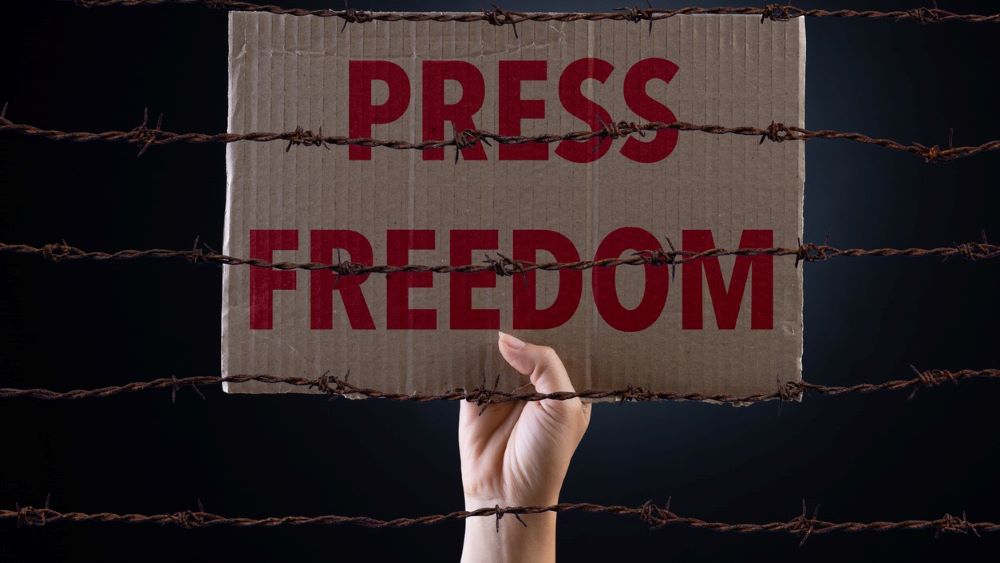Fake news, slander, blackmail, representation of oligarchic and party interests are the main characteristics of the Macedonian media landscape.

Borjan Jovanovski
After the decades-long systemic and institutional operation to devastate media freedoms carried out by the regime of former Prime Minister Nikola Gruevski, who is now on the run, in 2016 the EU rated Macedonia as a ‘state capture’. Six years after the fall of this authoritarian regime, this country still fails to normalize the conditions that should enable the work and functioning of free media. Fake news, slander, blackmail, representation of oligarchic and party interests are the main characteristics of the Macedonian media landscape. The data of several European rankings for media literacy, in which North Macedonia is persistently in last place, is additionally devastating.
The Freedom House report for 2022 also confirmed such situations in the freedom of the media.
‘The media landscape is deeply polarized along political lines, and private media are often tied to political or business interests that influence their content’, says the conclusion of this report. Freedom House places a special emphasis on threats and physical attacks against journalists, which have seen a significant increase.
‘The report of the Association of Journalists of Macedonia from June 2021 counted 14 threats and physical attacks against journalists in 2020, while only 4 such incidents were recorded in 2019. More than half of the targets were female journalists’, says the Freedom House report.
Regarding the findings of Freedom House, the president of the Association of Journalists, Mladen Chadikovski, in a statement for ‘Vicinity’ points out that ‘impunity is still a big problem in the country. Of particular concern is the hate speech and labeling of journalists and media workers by politicians and other public office holders. This worrisome trend is also confirmed by the Freedom House report, where the country is ranked in the group of “partially free” states,’ says Chadikovski.
Hope for some perspective to overcome this particular problem brings the new legal solution. ‘By extending the jurisdiction of the prosecutor’s office and by increasing the penalties for acts of coercion, i.e. endangering the security of media workers, a new systemic mechanism is being established to protect the rights of journalists,’ said Chadikovski. In this sense, the verdict of the Criminal Court against the owner of the tabloid site, paradoxically self-named ‘Dokaz (Proof)’, which for years has been spreading false news and slander about all the ‘enemies’ of its superiors, was a positive surprise. He is now sentenced to three years in prison. Two of the victims of this incriminated portal are journalists. Irena Mulachka, an investigative journalist in the weekly ‘Focus’ says for ‘Vicinity’: ‘The texts against me and my family started when I was investigating the property of the mayor Danela Arsovska’, Mulachka told us, pointing out Arsovska as a possible source of these threats. ‘I believe that the verdict will make wise those who, through a racket, want to destroy what little is left in journalism,’ Mulacha told us after the announcement of the verdict. The second journalist victim of this tabloid is Valentina Vurmo, also from the weekly ‘Focus’. She told us that the texts about her in ‘Dokaz’ followed after she wrote about the ‘Imperia’ case, which is connected to the controversial businessman Orce Kamchev. The current mayor was an independent candidate supported by the opposition party VMRO DPMNE, and Orce Kamchev is known to the public as a favorite of Gruevski’s regime.
One of the problems regarding this (non) culture is also the passivity of the political parties in terms of their efforts to improve the situation, and especially the fact that the opposition VMRO DPMNE, during whose rule the greatest blow to medical freedoms took place, has not yet developed a critical attitude towards their past actions from a position of power.
The public is now waiting for the outcome of the investigation led by the prosecutor’s office on who ordered the blackmail content on the ‘Dokaz’ site, which would lead to the source of this malignant wound in Macedonian society.
Borjan Jovanovski, a renowned journalist with several decades of work experience in the media space



Leave A Comment